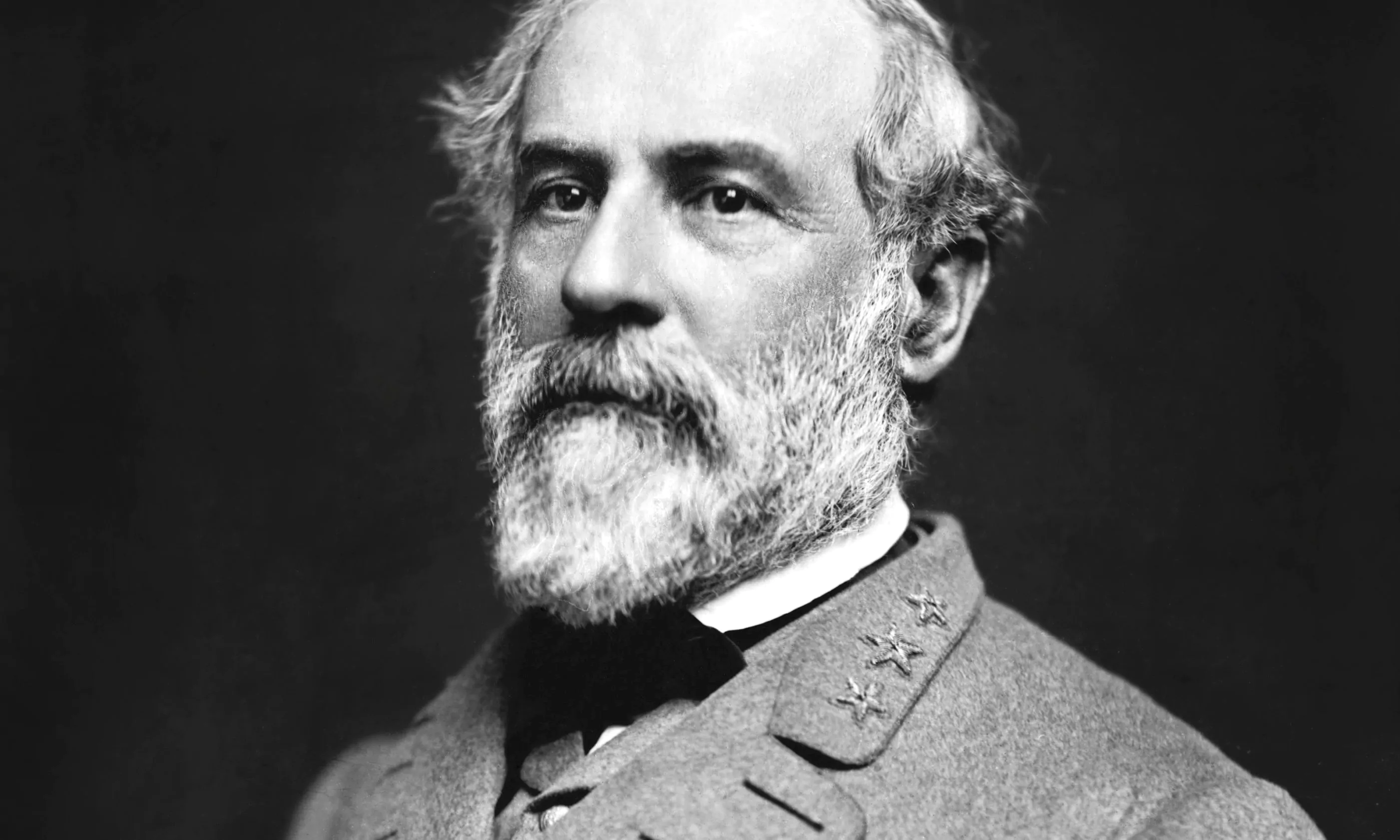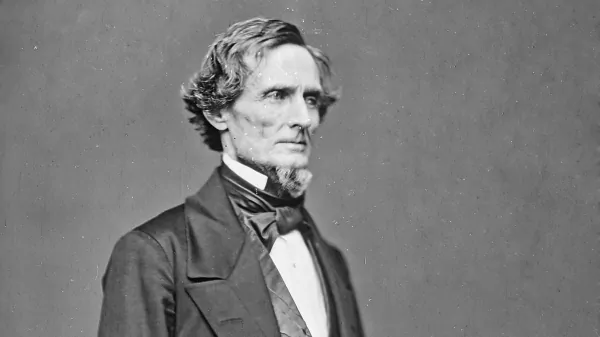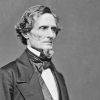Monday, January 21, 2019, is a state holiday and is celebrated across the state of Alabama as General Robert E. Lee’s birthday.
The Virginian commanded the Confederate Army of Northern Virginia in the War Between the States.
Lee was born on January 19, 1807 the son of Henry “Light Horse Harry” Lee III and Ann Hill Carter. Lee’s ancestor, Richard Lee, immigrated to Virginia from Shropshire, England in 1640 with the First Royal Governor Sir Richard Wyatt when the population of Virginia was approximately 8,000. Wyatt appointed Richard Lee as a court clerk. From there he rose to Attorney General, a member of the House of Burgesses, high sheriff, Virginia Militia Colonel, and a member of the Council of State. Subsequent generations of Lees excelled in political and military affairs in Virginia. Two of Robert E. Lee’s cousins were signers of the Declaration of Independence and one was President of Congress under the Articles of Confederation. There were Lee family members as leaders in both the Federalist and Anti-Federalist camps on ratifying the Constitution.
Robert E. Lee was born in the luxurious historic Stratford Hall Plantation, which his father General Henry “Light horse Harry” Lee III had inherited from his first wife and cousin, Matilda Lee. The senior Lee had served as a Lieutenant Colonel in the American Revolution where he mastered both cavalry and guerilla tactics, before guerilla tactics were even known as such. After the British surrender at Yorktown he resigned his commission and served in the Continental Congress; three terms in the Virginia House of Delegates; three one year terms as Governor of Virginia; in the U.S. House of Representatives; and was summoned by President George Washington to serve as a general in the Whiskey Rebellion, recommissioned a Major General in the U.S. Army by President John Adams (F) when war with France appeared imminent, and by President Thomas Jefferson (D) when war with Great Britain appeared likely. Congress asked him to deliver the official eulogy for President George Washington. By the time of Robert E. Lee’s birth however the boldness that had served Light Horse so well in the Revolution as a cavalry officer and later as a politician failed him in real estate speculation. In 1809 the senior General Lee was imprisoned in a 9’ x 12’ cell in debtor’s prison where he wrote his memoirs on the southern campaign of the Revolution. After getting out of prison in 1811, he moved the family from Stratford to Alexandria. In 1812 he was savagely beaten by a mob in Baltimore defending a friend and freedom of the press. He never fully recovered from those injuries and died in Georgia at the home of his friend and wartime commanding officer General Nathaniel Greene in 1818 when Robert E. Lee was just 11. Henry had nine children; but the eighth, whom he only mentioned once in his letters, would become the greater legend.
Robert E. Lee’s older half brother Henry Lee IV lost Stratford after being sued by creditors, most notably a judgement for mishandling his teen sister-in-law Betsey McCarty’s inheritance and having an affair with the girl. Nicknamed “Black Horse Harry” after the affair, the scandal was a costly embarrassment to the family and Henry IV died in exile in Paris in 1837.
By the time Robert E. Lee was ready to attend college in 1825, securing an appointment to the U.S. Military Academy at West Point was the only option as the family had no money left. Robert E. Lee finished second in his class and did not receive one demerit in his four years there. He then embarked on a lifetime of military service.
Robert married childhood friend Mary Ann Randolph Custis in 1831. Her father was Martha Washington’s grandson and George Washington’s adopted grandson. Arlington was her family estate. They had four children. Lee, an engineer, spent much of his early military career designing, building, and improving military fortifications. From 1834 to 1837 he served as an assistant to the Chief Engineer of the Army. He was promoted to captain in 1838. In 1846 he was ordered to Mexico in the Mexican-American War. There his abilities were recognized by General Winfield Scott and he became a member of the General’s staff in the War. Lee reluctantly accepted the assignment as the Superintendent of West Point from 1852 to 1855. The cadets he trained there would become key officers on both sides of the Civil War. In April 1855 Lieutenant Colonel Lee left the Engineers Corps when he was given a promotion to second in command of the U.S. Second Cavalry where he fought Indians in Texas from 1855 to 1859. In October 1859, while Lee was back home at Arlington, the radical abolitionist, John Brown led a force of 21 abolitionists who seized the federal arsenal at Harper’s Ferry, Virginia in order to launch a slave revolt. President James Buchanan (D) gave Lee command of a hastily assembled force of soldiers, militia, and Marines to respond to the crisis. Lee quickly defeated Brown and rescued the hostages in just three minutes of fighting. John Brown’s raid failed to incite a slave insurrection; but it greatly heightened the tension between North and South. In February 1860 the Army gave Lieutenant Colonel Lee command of U.S. forces in Texas, where he negotiated an agreement with the Mexican government that they would restrain Mexican rancher Juan Cortina from leading paramilitary raids into Texas, ending the First Cortina War. When Texas seceded from the Union in February 1861, Lee’s commanding officer General E. Twiggs surrendered Lee and all 4,000 U.S. troops there to the Confederacy. Lee then returned home.
The Commander of the U.S. Army General Scott told President Abraham Lincoln (R) that he needed Lee. Lee ignored an offer of a command from the new Confederate State of America. On March 28, 1861 Lee accepted a promotion to Colonel and was given command of the U.S. First Cavalry by Pres. Lincoln (R). On April 12, 1861 Confederate forces opened fire on Fort Sumter in South Carolina. On April 17, a Second Virginia convention on secession voted in favor of secession. On April 18th, with Civil War now a reality, on April 18 a presidential advisor offered Lee a “major command in defense of the U.S. Capitol.” Lee said that he could not raise his sword against his native Virginia. On April 20 Lee resigned his position in the U.S. Army. His mentor, General Scott, told him that he had made the greatest mistake of his life. Lee accepted an invitation to speak to the Virginia convention on secession. Before he got there, they voted to give him command of all Virginia forces. When he arrived at the convention they presented him with George Washington’s sword and the command on April 23, 1861.
Lee began assembling and training Virginia’s army, while advising President Jefferson Davis C.S.A. Lee correctly predicted a long, bloody, disastrous war……a minority and unpopular opinion among the Confederate leadership at the time. When the CSA Army was organized, Lee was one of five full generals along with: Samuel Cooper, Albert Sidney Johnston, Joseph E. Johnston, and Pierre G.T. Beauregard, with Lee being third in seniority.
In his first action of the war, in September 1861 Lee tried to dislodge a Union force from their position on Cheat Mountain in what is today West Virginia and failed in the effort. Lee was heavily criticized for his conduct of the campaign and was reassigned to improving the coast defenses of South Carolina and Georgia. There Lee lost Fort Pulaski to Union forces, but prevented a larger Union force from taking Savannah. Lee was widely criticized for the mixed results and was then appointed as military advisor to President Davis.
In the Spring of 1862 the powerful Union Army of the Potomac under General George McClellan began making a methodical and concerted drive toward the Confederate Capitol of Richmond. The Confederate Army of Northern Virginia was under the command of General Joseph E. Johnston. General Johnston however was wounded in the Battle of Seven Pines on June 1, 1862. With the South teetering on the brink of losing the War between the States, Davis gave Lee the command. The move was widely condemned by Southern editorial writers who felt Lee was not dynamic enough. After digging in around Richmond for three weeks for what everyone was expected to be a long siege, Lee unexpectedly launched a series of savage counter attacks against the superior Union force. Confederate casualties were enormous; but McClellan, misjudging the size of the opposing Confederate force, gave up his effort to take Richmond and ordered a hasty retreat 25 miles away to the James River. The Peninsula Campaign was a Confederate victory that arguably should never have happened.
On August 28-30 Lee defeated a much larger second Union force under General John Pope at the Second Battle of Bull Run. In just nine weeks time, the front had moved from just six miles from Richmond to 20 miles from Washington D.C.
Lee then invaded Maryland. McClellan captured the Confederate plans so his 87,138 troops met the Confederate invasion force of 38,000 near Sharpsburg, just 70 miles North of Washington. Along Antietam Creek, 23,000 Americans died on both sides on the day of April 17, 1862. Because the South withdrew back to Virginia and Washington was saved, the battle was a tactical Union victory; but Lincoln’s dream of winning a quick decisive victory were dashed by the events of those 90 days.
Because Lee had escaped, Lincoln replaced McClellan as commander of the Army of the Potomac with General Ambrose Burnside. Burnside attacked Fredericksburg, Virginia; however after he crossed the Rappahannock River he was unable to dislodge Lee from his prepared positions. 122,009 troops with the Army of the Potomac were repulsed by 78,513 Confederates under Lee. Burnside withdrew after taking over 12,000 casualties on December 15, 1862.
In May 1863, the Army of the Potomac under General Joseph Hooker forced battle with Lee at Chancellorsville. They were thoroughly routed even though Hooker had 133,868 men to Lee’s 60,298. It was Lee’s finest victory. Afterwards, the New York Tribune’s Horace Greeley wrote, “My God! It is horrible—horrible; and to think of it, 130,000 magnificent soldiers so cut to pieces by less than 60,000 half-starved ragamuffins!” Lt. General Thomas Jonathan “Stonewall” Jackson, who commanded Second Corps (and was arguably Lee’s most capable commander) died from his wounds at Chancellorsville.
In June 1863, Lee invaded the north again. Hooker moved to ignore Lee and move on Richmond; but Lincoln overruled that decision. General George Meade met Lee at Gettysburg, Pennsylvania in July. After three days of intense fighting that produced over 48,000 combined casualties, Lee was forced to withdraw although he withdrew in good order with only limited efforts at pursuit by Meade. Worse the decision to gamble everything on the invasion meant that the Confederacy failed to devote enough resources to break through to relieve Vicksburg, Mississippi which fell to General Ulysses S. Grant while Lee was battling Meade at Gettysburg. The west was now cut off from the rest of the South. Realizing the extent of the debacle, Lee offered his resignation to Davis; but Davis refused it.
In October 1863 Lee and Meade clashed again in the Bristow Campaign; but there was no decisive outcome. On November 27 Meade attempted to cut off Ewell’s Second Corps; but the planned forced march was too slow so Lee was able to react and fend off the effort in the five day battle.
On May 5-7, 1864 Lee fought Grant’s much larger force in the Battle of the Wilderness. On May 8-21 Lee engaged Grant and Meade again in the Battle of Spotsylvania Court House. The Union force was much bigger; but Lee simply could not be outflanked even with superior force. The Confederate Cavalry commander, Major General James Ewell Brown “Jeb” Stuart was killed on May 11 at the Battle of Yellow Tavern. As the furious fighting deeper into Confederate territory continued, the Union force in the field grew smaller and the Confederate force grew larger with reinforcements. By the Battle of North Anna River on May 23-26 Grant had 68,000 (down from 130,000 three weeks earlier) to Lee’s 53,000. More battles followed through June 24 as Grant sought to outflank Lee in the campaign culminating in a Confederate Victory at the Battle of Cold Harbor from May 31 to June 12 with the heaviest fighting on June 3 and Grant’s decision to order a frontal assault of his II Corps that was comparably as futile and bloody as Pickett’s Charge for the Confederates at Gettysburg. After two months of intense fighting in the Wilderness/Overland campaign Grant had lost 7 ,621 troops, 38,339 were wounded, and 8,966 were captured or missing. Lee had lost 4,352, 19,130 were wounded, and 10,164 were captured or missing; but the South could not replace those losses.
In June the siege of Petersburgh, Virginia began. The two armies would fight trench warfare, presaging World War I through April 1865.
As part of the Siege of Petersburgh, on July 30, 1864 General Burnside’s IX Corps mined under the Confederate defenses and exploded the mine. In the Battle of the Crater Burnside’s force tried to rush through the breach; but were ultimately repulsed by Lee.
On August 4, 1864 Lee repulsed an effort by Major General Winfield Scott Hancock to break through Confederate lines to Richmond.
On February 9, 1865 Lee was made Commander-in-Chief of all Confederate forces.
On April 2, 1865 the decimated Confederate force retreated from their lines around Petersburg. On April 3 Richmond fell. Lee was seeking to march his army south to join General Johnston’s when his battered army was finally surrounded on April 9, 1865, by General Grant’s Army of the Potomac. General Lee chose to surrender at Appomattox Courthouse rather than fighting to the death.
Lee broke the news to his troops with this address:
“I need not tell the brave survivors of so many hard fought battles, who have remained steadfast to the last, that I have consented to this result from no distrust of them; but feeling that valor and devotion could accomplish nothing that could compensate for the loss that must have attended the continuance of the contest, I determined to avoid the useless sacrifice of those whose past services have endeared them to their countrymen.”
“By the terms of the agreement, officers and men can return to their homes and remain until exchanged. You will take with you the satisfaction that proceeds from a consciousness of duty faithfully performed; and I earnestly pray that a Merciful God will extend to you His blessings and protection.”
“With an unceasing admiration of your constancy and devotion to your Country, and a grateful remembrance of your kind and generous consideration for myself, I bid you all an affectionate farewell.”
Lee returned home from the war on parole. He was indicted for insurrection, but never brought to trial. His beloved Arlington estate was seized by federal authorities and turned into America’s premiere military cemetery during the war. The family would not be compensated until years after Lee’s death. Lee applied for a pardon, but that was “lost” until 1975. In August 1865 Lee was elected the president of Washington College in Virginia – now known as Washington and Lee University. He accepted an invitation to visit President Grant (R) in the White House. He died on October 12, 1870 in Lexington, Virginia.
Lee’s birthday is a state holiday. It and Martin Luther King Day are celebrated on the same day.
Some in the civil rights community object to the state honoring Lee with a state holiday.
Wikipedia and the Stratford Hall website were consulted for this article.


















































